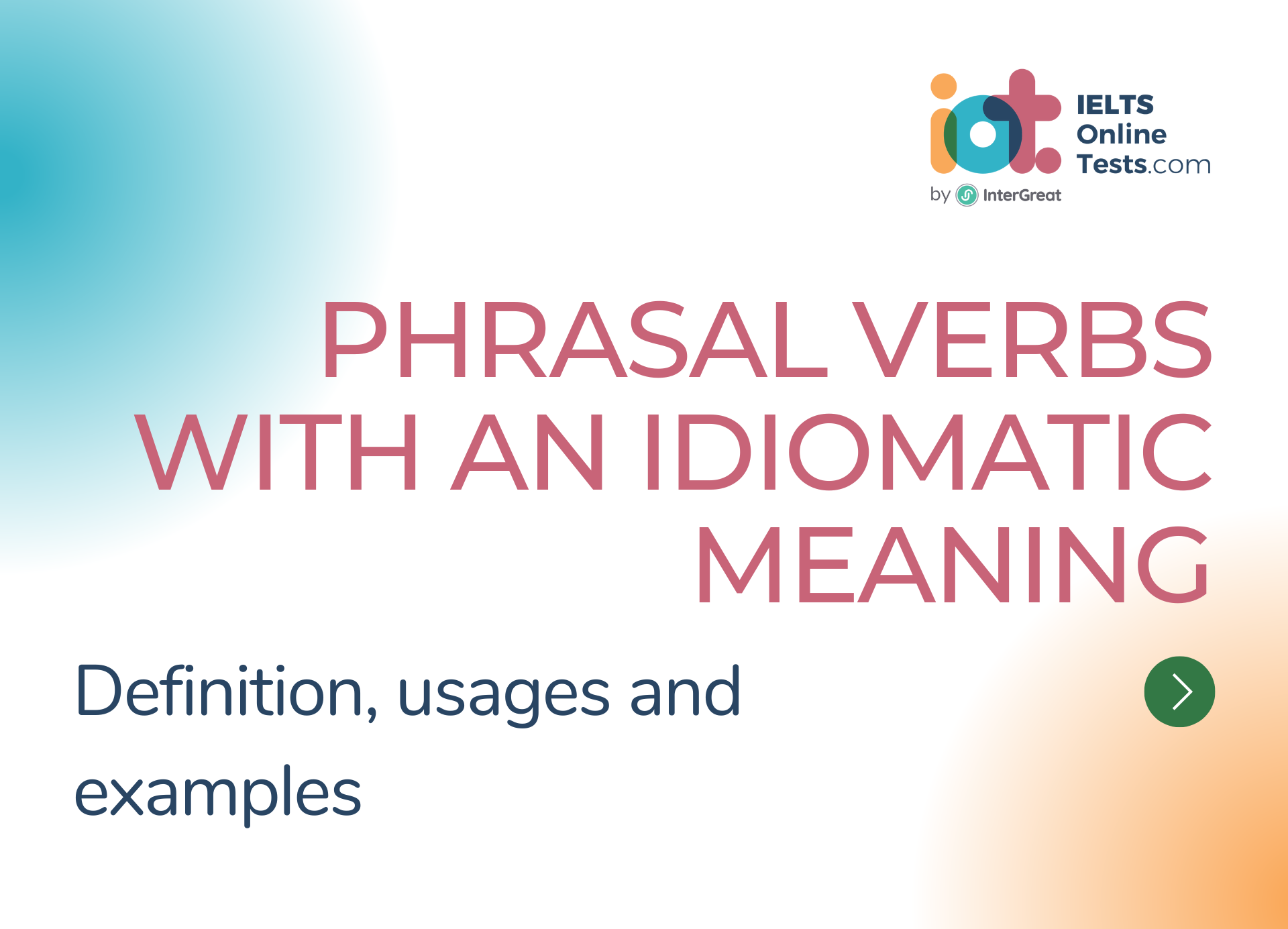
Phrasal verbs with an idiomatic meaning
Phrasal verbs with an idiomatic meaning are combinations of a verb and one or more particles (prepositions or adverbs) whose meaning cannot be deduced from the individual words. Instead, these phrasal verbs have a figurative or idiomatic meaning that goes beyond the literal interpretation of their components.
Here are some key points about phrasal verbs with an idiomatic meaning:
Structure:
- Phrasal verbs with an idiomatic meaning consist of a verb and one or more particles.
- The particle can be a preposition or an adverb.
- The combination of the verb and particle creates a new, figurative meaning that is not directly related to the individual words.
Examples:
- "Break up" (verb + particle): They decided to break up after years of dating.
- "Get over" (verb + particle): It took her a long time to get over the loss of her pet.
- "Bring up" (verb + particle): He was brought up by his grandparents.
- "Put off" (verb + particle): Let's put off the meeting until next week.
Idiomatic Interpretation:
- Phrasal verbs with an idiomatic meaning have a figurative interpretation that cannot be understood by the literal meanings of the verb and particle.
- The combination of the verb and particle expresses a specific concept, action, or emotion.
- Examples:
- "Break up" means to end a relationship
- "Get over" means to recover from something emotionally
- "Bring up" means to raise or raise a topic
- "Put off" means to postpone or delay
Object Placement:
- Phrasal verbs with an idiomatic meaning may or may not take an object, depending on the specific phrasal verb.
- The object, when present, can come after the particle or be placed in between the verb and particle.
- Examples:
- "They decided to break up."
- "It took her a long time to get over the loss."
- "He was brought up by his grandparents."
- "Let's put off the meeting."
Understanding and using phrasal verbs with an idiomatic meaning is important for effective communication in English. Learn the figurative interpretations of these phrasal verbs and practice using them in context to grasp their intended meanings.




